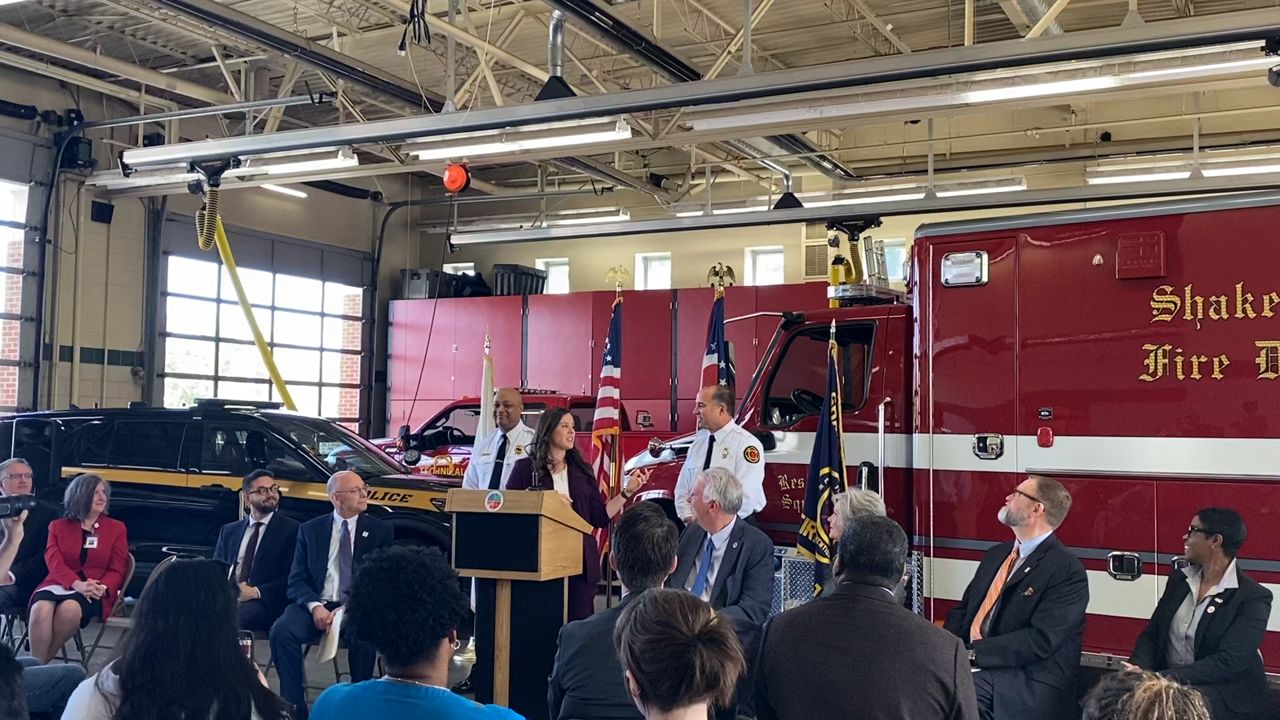SHAKER HEIGHTS, Ohio — Cuyahoga County announced four cities are joining Shaker Heights in participating in the “First Call” program.
Shaker Heights has been doing this program for the past two years. Annette Amistadi is a Shaker Heights social worker and has participated in the program the last couple years. She explained the importance of having the right personnel responding to emergency situations.
“Sometimes individuals would rather talk to a mental health provider instead of our first responders,” she said.
The “First Call” program’s goal is to team up a mental health professional with the fire or police department when responding to a 911 call that deals with a mental health crisis. Amistadi explained how it works.
“First, our first responders make sure the scene is safe, so then the mental health team will go in and we assist in the deescalation,” she said.
Amistadi said the program received 645 referrals in Shaker Heights last year. The success of the program is the reason that cities, such as Cleveland Heights, are joining it. Cleveland Heights Mayor Kahlil Seren expressed the need for this program.
“Our cities need this. I know that I speak for the City of Cleveland Heights when I say there are people in my city who need help,” he said.
The program will now be in Shaker Heights, Cleveland Heights, South Euclid, University Heights and Richmond Heights. There will be four new mental health professionals and three peer support workers to cover the expanded area, Amistadi explained.
“We work together to kind of assess what the presenting problem is, what they need, and then also the next step so whether that’s staying in their home, going to a crisis bed or a hospital and discussing like that followup ongoing care so hopefully again we can avoid that crisis afterwards,” she said.
The program is expected to start in the expansion cities by early summer.



